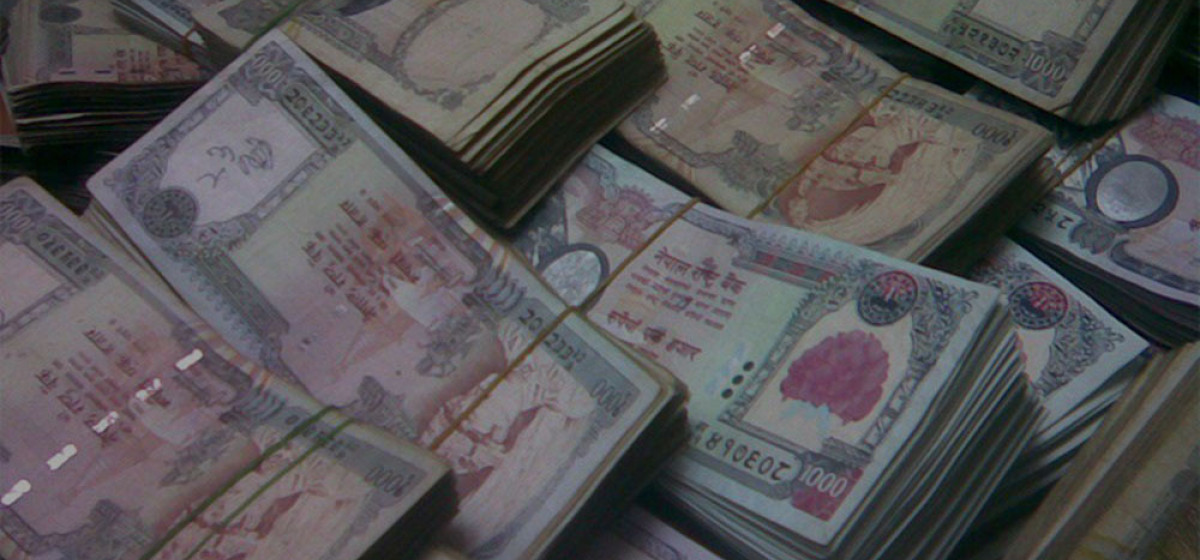
OR
Editorial

The news report of the government failing to meet the revenue collection target for the first eight months of the current fiscal year is alarming. The government's inability to generate enough revenue indicates that it may not be able to fund its development projects and maintain its regular operations. This failure could have far-reaching consequences for the economy and the people of Nepal. The government had set an ambitious target of collecting Rs 651 billion in revenue within the first six months of the current fiscal year that began in mid-July. However, by the end of the eighth month, only Rs 571 billion had been collected, which is only 40.7 percent of the annual target. This means that the government has missed its revenue collection target by a significant margin.
The government's failure to collect the targeted revenue is primarily due to the poor performance of tax revenue and non-tax revenue collection. The government has only collected 39.84 percent of the tax revenue target, and only 51.01 percent of the non-tax revenue target so far. Similarly, the government has only received 8.66 percent of the targeted grant, which is quite low. Furthermore, the government's low capital expenditure of only 21.86 percent is a cause for concern. The government had allocated a budget of Rs 380 billion for capital expenditure in the current fiscal year, but it has only been able to spend Rs 83.31 billion in the first eight months. This low capital expenditure could mean that development projects may suffer, and infrastructure development may be slow.
The low capital expenditure by the government during the first eight months of the current fiscal year is equally a matter of concern. The figures released by the government indicate that only 21.86 percent of the allocated budget of Rs 380 billion has been spent on infrastructure development during this period. This means that the pace of development work in the country is slow and the government agencies have not been able to spend enough budget on multi-year projects. The government had allocated a budget of Rs 1.793 trillion for current, capital, and financial management in the current fiscal year. Out of this, only 43.09 percent has been spent during the first eight months of the year. This is a cause for worry as it means that the government may not be able to achieve its targets for the year.
The government's significant shortfall in revenue collection has been widely attributed to the 10-month long restrictions on imports of goods, especially automobiles and luxury items. The import duties and taxes on realty transactions have been crucial revenue sources for the government for many years. However, the current situation should not be excused as solely a result of the government's tax revenue collection model. Economists have long criticized the government's heavy reliance on these sources, arguing that they are not sustainable. The government itself has acknowledged the need for tax reforms and expressed its commitment to shift towards more effective implementation of VAT in domestic areas, reducing external dependency to strengthen revenue sources. Furthermore, economists have suggested that the government has failed to significantly expand tax bases.
The government's inability to meet its revenue collection target and low capital expenditure could have significant implications for the country's economy. The government may have to cut back on its planned development projects, which could lead to slower economic growth. Additionally, the government may have to resort to borrowing to fund its operations, which could lead to a rise in the country's debt burden. To address this situation, the government needs to take immediate steps to improve revenue collection and increase capital expenditure. The government needs to focus on improving tax revenue collection by cracking down on tax evasion, increasing tax compliance, and finding innovative measures to bring all people and businesses under its tax net.
You May Like This
_20230830114144.jpg)
PM Dahal preparing for a roundtable discussion to seek ways to improve economy
Kathmandu, Nov 1: Prime Minister and CPN (Maoist Center) Chair Pushpa Kamal Dahal has said that the country's economy is... Read More...

PM holds consultation with private sector representatives to improve economy
KATHMANDU, Aug 15: The government has started holding discussions with stakeholders including the private sector, donor agencies, development partners and... Read More...

Efforts underway to revitalize COVID-19 hit economy: FinMin Sharma
LALITPUR, March 18: Finance Minister Janardan Sharma has said that the government has introduced various plans to get the COVID-19-hit... Read More...







Just In
- NRB to provide collateral-free loans to foreign employment seekers
- NEB to publish Grade 12 results next week
- Body handover begins; Relatives remain dissatisfied with insurance, compensation amount
- NC defers its plan to join Koshi govt
- NRB to review microfinance loan interest rate
- 134 dead in floods and landslides since onset of monsoon this year
- Mahakali Irrigation Project sees only 22 percent physical progress in 18 years
- Singapore now holds world's most powerful passport; Nepal stays at 98th











Leave A Comment